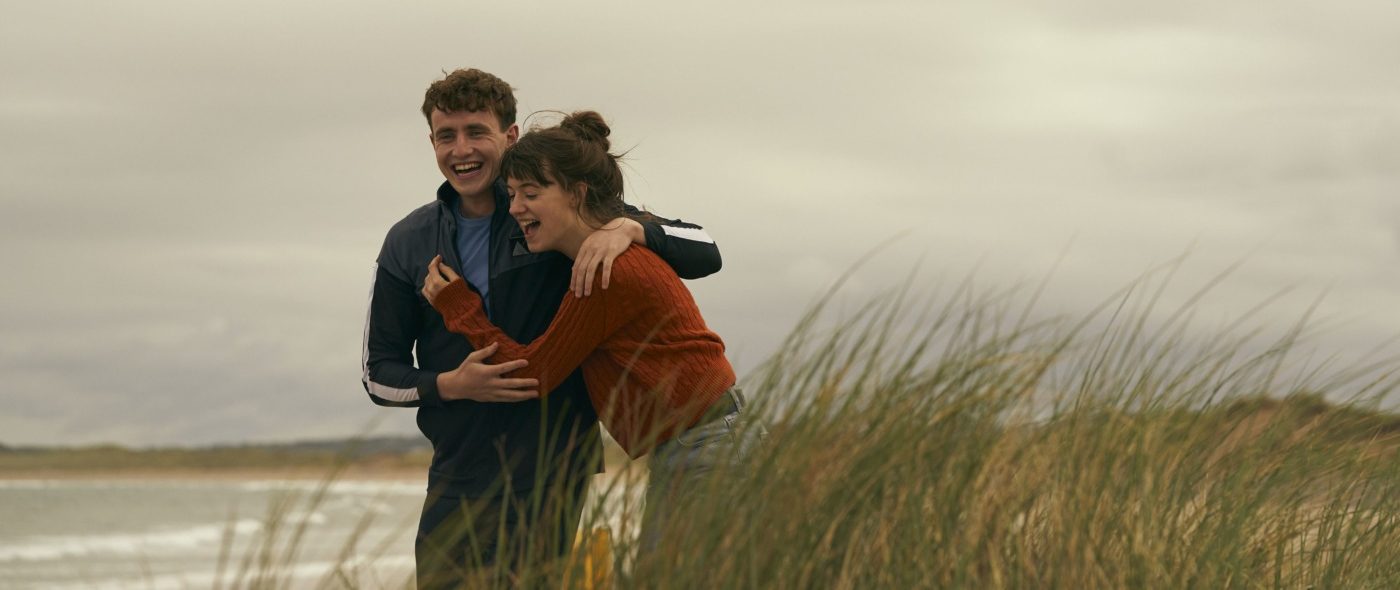‘Normal People’: the BBC’s adaptation of Sally Rooney’s novel
The BBC and Hulu came together to produce Sally Rooney’s best selling novel Normal People (a partnership that has often created stunning series and artful adaptations with ‘Looking For Alaska’ being the first of many that comes to mind) – a book which was nominated for the Man Booker Prize and won both Costa’s and Waterstones ‘Best Novel’. Anxieties were high about the anticipated adaptation and whether it would rouse as much emotion as the book, but Lenny Abrahamson has succeeded.
Normal people portrays the journey of two young adults in rural Ireland, navigating their relationship with each other from school to University. Marianne is the lonely outsider, whilst Connell is popular but quiet; both excel academically and escape their small town lifestyle in exchange for Trinity College in Dublin. Here, their positions seem reversed: Connell becomes the isolated one and struggles to connect with anyone, whilst Marianne seamlessly finds a new crowd. Rooney offers a refreshing take on first love and first relationships, crafting a tender and raw attraction between the two. The appeal at first is both sexual and intellectual, but then grows to be deeply emotional as they learn with and from each other. Abrahamson has also been applauded for providing a healthy representation of sex, as they grapple with desire albeit awkwardly but consensually. It becomes an ode to teenage love and first relationships.
Abrahamson has also been applauded for providing a healthy representation of sex, as they grapple with desire albeit awkwardly but consensually
Concerns were raised over the age of the cast and whether they would succeed at playing sixth formers, but both Mescal and Edgar-Jones effortlessly construct an awkward teenage facade. The show also sticks very close to the plot, almost word for word at some points in their dialogue – no doubt an input from Rooney herself who co-wrote some of the script. Paul Mescal is a radical TV debut, with an uncanny ability to authentically display a spectrum of emotions. Daisy Edgar-Jones also does the awkward ‘weird’ girl performance well, and transitions gracefully from a ridiculed student to a thriving socialite at Trinity.
Abrahamson engages with the varying toxic relationships Marianne attracts, where the violence appears as an echo of the own abuse she saw and experienced at home. But Connell seems to be the only exception to this: in him she finds true compassion, patience and love. Connell is not immune to hurting her however: in school he asks out Rachel, the popular girl who has been pining after him, to mask the shame of being seen with Marianne some days before. He feels helpless against his own insecurities, being completely overwhelmed by what people think of him. Ironically, he learns at the end of the school year that most people already knew he was with Marianne. Hiding her away and consequently hurting her was all for nothing. Connell’s mother, played by Sarah Greene, gave a compelling performance of the heartwarming mother figure that Marianne lacks, offering sympathy and consolation to Marianne over her own son, who she remains furious with after acting so shallow.
The show also sticks very close to the plot, almost word for word at some points in their dialogue – no doubt an input from Rooney herself who co-wrote some of the script
Rooney plays with class division well, by looking at the economic struggle of Connell in comparison to Marianne’s often ignorantly privileged stance. Scholarships mean something different for them both: for Connell it ensures free education and accommodation whereas Marianne sees it as confirmation of her own intelligence. Yet by winning it, the economic disparity between them becomes more balanced, and allows Connell to go on holiday that summer and live in a life more similar to Marianne’s.
The show provides a refreshing take on male mental health – Connell’s therapy session was done beautifully and we see each painful moment of his depression and his panic attacks. Rooney acknowledges too that suicide is the largest killer for men under 30, as it is the suicide of their old school friend that triggers Connell’s decline. The show also touches a lot on loneliness, a feeling that affects Marianne in school and Connell in college. But to a larger extent, there is an overwhelming isolation throughout life and how rare it is to truly connect to some one – Marianne says that people are hardly truly understood by others. And yet the couple find each other, and continue to gravitate towards each other despite changing circumstances.
Rooney plays with class division well, by looking at the economic struggle of Connell in comparison to Marianne’s often ignorantly privileged stance
As the show concludes, Connell and Marianne don’t know where they will be in a years time. Connell is torn about leaving for New York, knowing that what they have will never be the same again, yet Marianne lets him go and finds comfort in that ‘we have done so much good for one another’. A bittersweet but perfect ending to a new timeless piece.

Comments